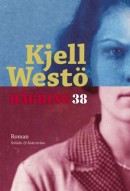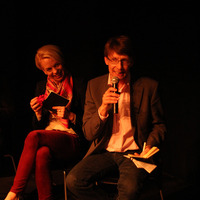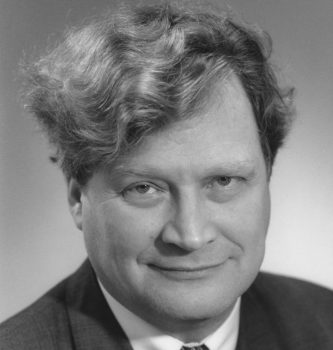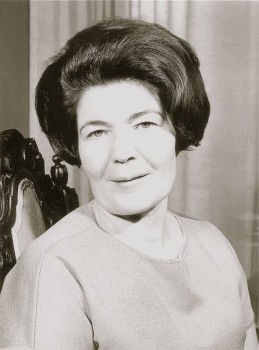Search results for "2010/02/2011/04/2009/10/writing-and-power"
When I’m ninety-four
14 November 2013 | Fiction, Prose
An extract from the novel Kuolema Ehtoolehdossa (‘Death in Twilight Grove’, Teos, 2013). Minna Lindgren interviewed by Anna-Leena Ekroos
At the Health Clinic, Siiri Kettunen once more found a new ‘personal physician’ waiting for her. The doctor was so young that Siiri had to ask whether a little girl like her could be a real doctor at all, but that was a mistake. By the time she remembered that there had been a series of articles in the paper about fake doctors, the girl doctor had already taken offence.
‘Shall we get down to business?’ the unknown personal physician said, after a brief lecture. She told Siiri to take off her blouse, then listened to her lungs with an ice-cold stethoscope that almost stopped her heart, and wrote a referral to Meilahti hospital for urgent tests. Apparently the stethoscope was the gizmo that gave the doctor the same kind of certainty that the blood pressure cuff had given the nurse.
‘I can order an ambulance,’ the doctor said, but that was a bit much, in Siiri’s opinion, so she thanked her politely for listening to her lungs and promised to catch the very next tram to the heart exam. More…
Hotel for the living
30 June 1984 | Archives online, Fiction, Prose
An extract from Hotelli eläville (‘Hotel for the living’, 1983). Introduction by Markku Huotari
Raisa and Pertti are a married couple with three children, Katrielina, Aripertti and Artomikko. When she discovers she is to have another, whom she names Katjaraisa, Raisa decides to have an abortion, because another child, even if welcome, would now jeopardise her career – she has been offered a job with an international company at the very top of the advertising world. Raisa is the successful entrepreneur of the novel – on the one hand coldly calculating, without feeling, on the other superficially sentimental, perhaps the most startlingly ironic of the characters in Jalonen’s novel. His image of the brave new woman?
During her lunch hour Raisa took a walk via the laboratory, asked reception for the envelope and thrust it unregarded into her handbag. She was aware of her already knowing, but short of the envelope, there would as yet be no restrictions, nor were there any decisions that would have to be made. She had called Tom Eriksson, discussed yet again the same points and particulars, and ended tracing a finger over the two beautiful pictures on her wall. ‘The loveliest of seas has yet to be sailed’ and ‘I am life! For Life’s sake.’
She thought of Katjaraisa, her features, the palms the breadth of two fingers, just as Katrielina’s had been, and the same button-eyed gazing look as Katrielina. More…
An infinite number of days
31 March 1997 | Archives online, Fiction, poetry
Poems from Molnsommar (‘Cloud summer’, Schildts, 1996). Introduction by Tuva Korsström
Old man
He almost merely slept
and while he slept
his life was accomplished.
Pieces slid out
were examined and fitted together
and while he slept
he was made ready. More…
Kjell Westö: Hägring 38 [Mirage 38]
31 October 2013 | Mini reviews, Reviews
 Hägring 38
Hägring 38
[Mirage 38]
Helsinki: Schildts & Söderströms, 2013. 296 pp.
ISBN 97895152332069
€34, hardback
Kangastus
Suom. [Translated into Finnish by] Liisa Ryömä
Helsinki: Otava, 2013. 334 pp.
ISBN 9789511274032
€29.90, hardback
The previous novels by Kjell Westö (born 1961) have been sweeping in their scope, encompassing several generations. Westö’s writing is characterised by a precise instinct for historical details and love for his hometown of Helsinki. Hägring 38 focuses on the year 1938; the new ideas of that era and the worsening political climate in Europe are reflected in the differences of opinion among a group of Finland-Swedish gentlemen. In June of 1938 these friends attend the opening gala for the new Olympic stadium in Helsinki and watch as the winner of the 100-metre dash, a Jew, is demoted to fourth place. [In October 2013, after the publication of Westö’s novel, the Finnish Athletics Federation finally corrected that erroneous decision, which had been made for racist reasons.] Claes Thune, a lawyer who has lost his wife to another man and suffers from depressive episodes, is a leading member of the circle of friends. His new secretary, the taciturn Mrs Wiik, is one of the central figures Westö utilises to portray the prison camps and traumatic events of the Finnish civil war of 1918.
Translated by Ruth Urbom
Adieu, Paris!
31 December 1994 | Archives online, Fiction, Prose
One day an Indian physicist discovers that Paris has disappeared – or, in the words of the French government, has been relocated: ‘it now exists not merely in one place, but in many, perhaps not precisely here or there, but to some extent everywhere’. Extracts from the novel Kadonnut Pariisi (‘Paris lost’, Otava, 1994)
The news of the disappearance of Paris was, at first, an item in the remotest corners of the foreign news pages of the newspapers and in the light feature at the end of the television news – those absurd little stories: an elephant’s escape from the zoo, the mother of four who beat the world record for toothbrush-swallowing or the suicide of a news reporter in the middle of a television broadcast.
Professor Ansari, an Indian physicist, had developed a method for the extremely accurate measurement of the mass of the Earth. His conclusion was that the Earth weighed too little. And, by an extraordinary coincidence, the missing mass was approximately the same as the estimated mass of Paris. The physicist was foolish enough to make his result public and to utter the fateful words: ‘Well, of course the simplest explanation would be that Paris is missing. That it doesn’t exist any more.’ A news item on the subject in the ‘Crazy World’ column concluded with the remark: ‘Professor Ansari is continuing the development of his theory in the government mental asylum in Delhi.’ More…
Literary glory and basketball
23 November 2012 | This 'n' that

Fights with words: Baba Lybeck and Markus Nummi. Photo: Literary Death Match
Fans of new writing and competitive reading out loud converged on Korjaamo in Helsinki on October 25th for the second Finnish ‘episode’ of Literary Death Match. LDM (as it’s known to regulars) is a series of events created in the USA and hosted by Adrian Todd Zuniga in which authors perform live readings of their recent work and receive critical assessments from a panel of judges in a manner familiar to viewers of trashy TV talent shows.
The winners of the evening’s initial reading rounds advance to the final, where the ultimate victor is decided in a game show-style battle involving skills that are perhaps more tangential to the work of most authors.
In his shiny jacket, LDM co-founder Adrian Todd Zuniga certainly looked the part of the cheesy game show host. He was an enthusiastic compère and got the bilingual evening under way by introducing the panel of judges. Author Markus Nummi was to be responsible for assessing the competitors on literary merit, while Baba Lybeck, a radio journalist and host of Uutisvuoto (the Finnish TV version of the BBC’s topical panel show Have I Got News for You), would be awarding points for performance. The third member of the panel was journalist and author Ari Lahdenmäki, who was assigned the category of ‘Intangibles’, i.e. anything that didn’t fall under the other two headings. More…
Mishaps, perhaps
30 September 1976 | Archives online, Fiction, poetry

Jarkko Laine. Photo: Kai Nordberg
Jarkko Laine (born 1947) writes both prose and verse. He is the author of several hilarious and highly imaginative novels and a pioneer of the generation of Finnish underground poets. One of the most productive of younger Finland’s poets, he draws on the language and forms of mass commercial entertainment, comics, and pop music to write about people of today.
He is currently the editorial secretary of the literary periodical Parnasso. The poem below is from his latest collection Viidenpennin Hamlet (‘Fivepenny Hamlet’, Otava 1976)
![]()
1
In Turku again
the taxi’s travelling East Street
whose wooden sides have gone,
the radio’s laryngeal with static, VHF, the driver’s
telling me the tale,
the ice hockey season’s on us already,
even though there’s rain, green in the park,
I’m staring at the lifted houses
stuffed with sleeping persons,
the landmarks are going out one by one, all of them,
you might as well be
in the middle of the sea in a rubber dinghy,
soon I shan’t recognize anything here but
the cathedral, the castle,
my own name in the telephone directory. More…
Verse and freedom
16 January 2014 | Articles, Non-fiction

Aale Tynni (1913–1997). Photo: WSOY
Finnish poetic modernism, which with its freedom of rhythm came to dominate the literary mainstream of the 1950s, posed a particular challenge to the poets of the classical metrical and romantic poetic tradition. Aale Tynni (1913–1997) is not a poet of any one school or form, but rhythm is the deepest foundation of her poems, whether expressed in metre, free verse or the speech rhythms that characterise some of her poems of the 1950s and 60s, as well as those of her final years.
An Ingrian Finn, Tynni left Ingermanland near Petersburg for Finland as a refugee after the First World War, in 1919. The war and the period of uncertainty that followed it are present in her poems as an allegory, sometimes appearing as a dance of death or a carnival. At other times they emerge in the myth of Phaethon, who with his sun chariot is in danger of throwing Mother Earth off her axis, or as a game of chess in which God and the angel Gabriel play with the planets and moons as pieces. The poet makes use of mythic and cosmic references to widen her scope and to portray Man in the stages of history and the present age. More…
Letters from Klara
31 March 1992 | Archives online, Fiction, Prose
A short story from Brev från Klara (‘Letters from Klara’, Söderström & Co, 1991)
Dear Matilda,
you are hurt because I forgot your ancient birthday: that is unreasonable of you. To put it bluntly, you have expected my particular devotion all these years merely because I am three years younger. But let me now at last tell you that the passage of the years An Sich is no feather in one’s hat.
You pray for Higher Guidance – excellent. But until you receive it, it might perhaps be as well to discuss certain bad habits which are, as a matter of fact, not foreign to me, either. More…
Pleased to see me?
16 July 2009 | Columns, Tales of a journalist

Illustration: Joonas Väänänen
When the Finnish media developed a crush on the country’s foreign minister, writes Jyrki Lehtola, no one could foresee the consequences. Especially if the object of their affections might begin to believe what they say about him…
It is a generally accepted truth that the spiteful media only raise people up in order to cast them down again a moment later.
Generally accepted truths are often not the case, although the media’s amorous relationships are, as a general rule, of short duration. More…
